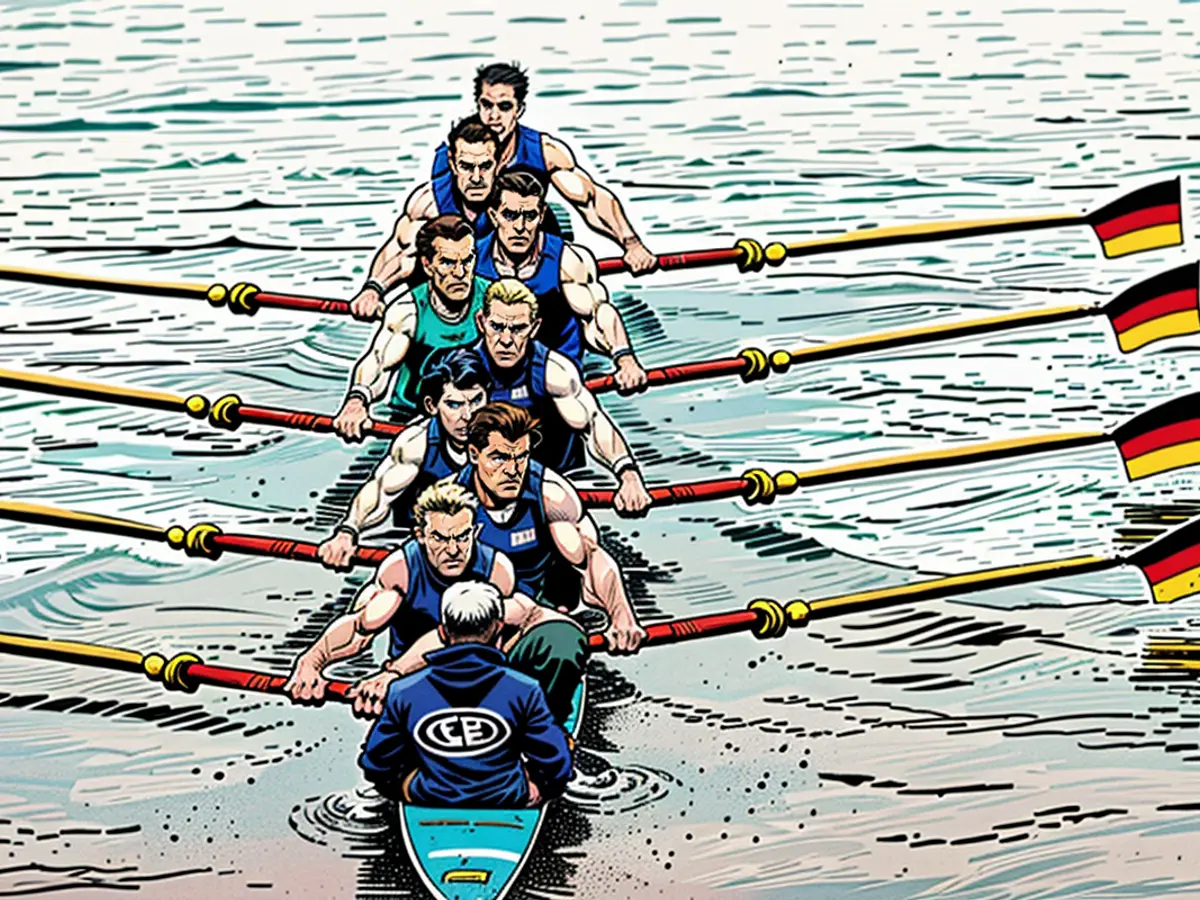Big worries over River Seine’s water quality as triathlon training canceled again
The decision to hold some swimming events in the famous river that splits Paris raised eyebrows when it was first announced. Swimming in the Seine has been illegal for a century but, in their desire to put the host city on full display, organizers worked up a plan to clean up the river so the world’s best athletes could use it during Paris 2024.
It was a risky move: pollution in the Seine typically jumps after heavy rains like the ones that fell in the French capital throughout Friday and most of the day Saturday. Training was canceled for a second straight day on Monday after water quality testing deemed the water unsafe for athletes.
Still, organizers are confident the race will go ahead as planned. The men’s triathlon is scheduled for Tuesday and the women’s triathlon is scheduled for Wednesday. The contingency dates for those races are Thursday and Friday, respectively.
“Given the weather forecast for the next 36 hours, Paris 2024 and World Triathlon are confident that water quality will return to below limits before the start of the triathlon competitions on July 30,” a joint statement from Paris 2024 and World Triathlon said.
The Paris area is set for its first heat wave of the summer this week that will hit at the same time as the triathlon.
Both high temperatures and low temperatures are expected to be well above average for the next several days leading France’s meteorological department, Meteo-France, to issue orange heat warnings beginning Monday at noon local time for 39 separate locations. In Paris and the Paris region, low temperatures will increase over the days, between 18 and 22°C (64 and 71°F). High temperatures will reach 34 to 36°C (93 and 97°F) on Tuesday and Wednesday, the days the triathlon is scheduled.
There is a chance of scattered thunderstorms in the afternoon on both Tuesday and Wednesday as well.
About $1.5 billion (1.4 billion Euros) has been spent trying to clean up the river ahead of the Games and Paris officials have made a big show of displaying its suitability. Paris Mayor Anne Hidalgo swam in the river earlier this month to display her confidence in the river’s water quality and promised to put a swimming pool in the river after the Games. The French sports minister has also gone for a dip in the Seine.

One of the key infrastructure projects designed to help tackle pollution has been a new rainwater storage basin – called the Austerlitz basin – which can hold 20 Olympic swimming pools worth of water, according to a statement from Paris 2024.
Following rainy weather on June 17 and 18, the basin filled to 80% capacity, successfully preventing 40,000 cubic meters (40 million liters) of wastewater and rainwater from being discharged into the Seine, according to the city of Paris.
But the water quality can change fast. Official data shows one-off rainfall events can quickly cause E. coli levels to spike again, and as recently as June 30 – following rain the previous day – E. coli levels increased to around 2000 CFU/100mL at Alexandra III Bridge, where the race is set to begin.
That’s double the level needed for “good” water quality, as per World Triathlon standards.
For much of the month before the games, E. coli levels were above acceptable levels, which could expose athletes to serious health concerns. If E. Coli levels are above 1000 CFU/100mL, the swimming leg of the triathlon will have to be cancelled, according to World Triathlon competition rules, unless the organization’s medical committee decides the race can go ahead.
The individual triathlon races will begin with a 1.5-kilometer swim, followed by a 40K bike race – passing by the Le Grand Palais and the Champs-Élysées – before finishing with a 10K run through the heart of the city.
A mixed team relay race involving four athletes – two men and two women – will start with each team member completing a 300-meter swim, followed by a 5.8K bike ride and 1.8K run.
CNN’s Saskya Vandoorne, Billy Stockwell, Julen Chavin, Amy Woodyatt, Joseph Ataman and Samantha Tapfumaneyi contributed to this report.
Despite the ongoing heat wave and potential thunderstorms, organizers remain hopeful that the triathlon events will proceed as scheduled, with the men's event on Tuesday and the women's event on Wednesday. The Mayor of Paris, Anne Hidalgo, has displayed her confidence in the river's cleanliness by swimming in it earlier this month, and a new rainwater storage basin has been instrumental in maintaining the river's water quality. However, unexpected spikes in E. coli levels, such the one observed on June 30, can pose a challenge, as levels above 1000 CFU/100mL could potentially cancel the swimming leg of the triathlon, according to World Triathlon competition rules.








